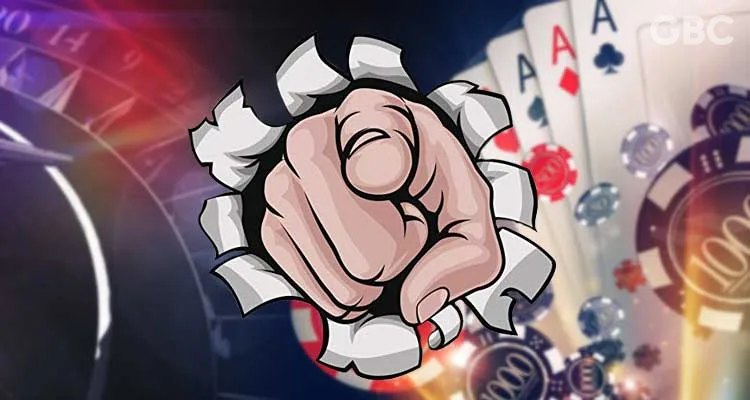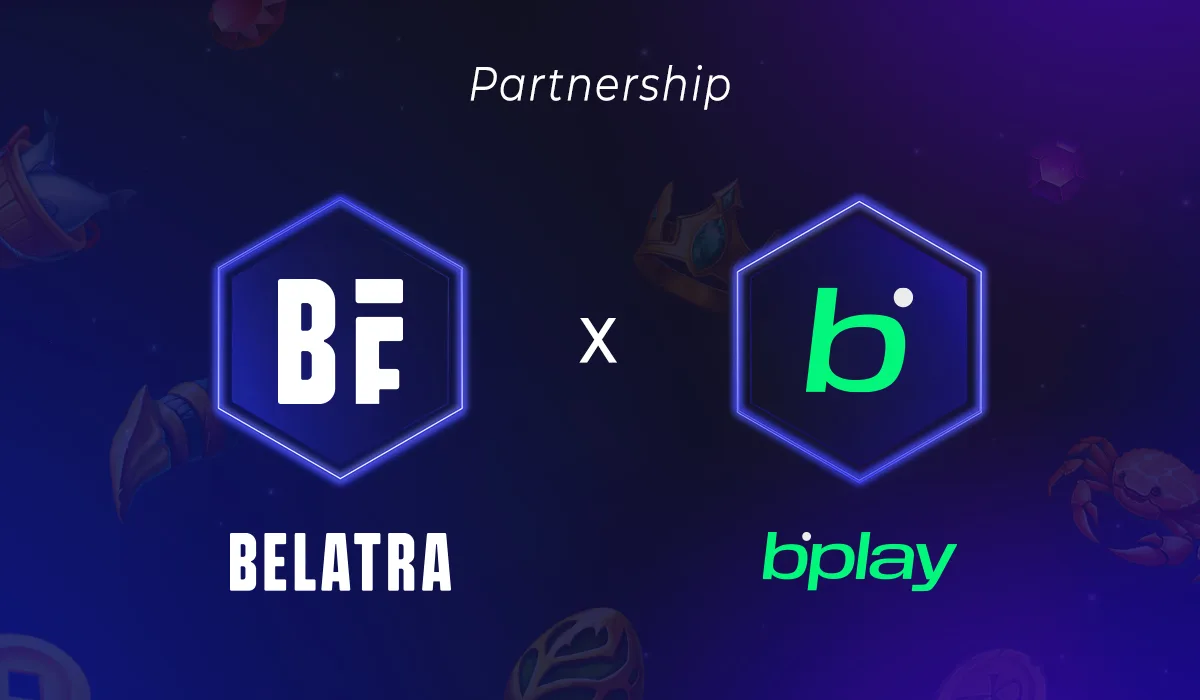Do you like buying lottery tickets or spending time playing slot machines? Have you ever been penniless or even went into the red as a result of gambling? Frequent gambling can be a sign of ludomania. How to recognize this problem in yourself and start playing properly? Ludomania can lead to job and welfare losses, legal and even family problems – and the list goes on. Fortunately, there are specially established care and treatment programs for people with this kind of addiction who want to stop gambling and learn to control their behavior.
What is gamble addiction?
Actually, the desire to scratch off a lottery ticket layer with a coin, play slots, or go to a casino is not necessarily a sign of ludomania. However, if the thought of it is so pathological that you are not able to get rid of it until you start playing, then you probably have a serious problem. The main features of gambling addiction are not only an obsessive desire to play but also the inability to control one’s behavior during the game. Game addicts would still gamble, despite the negative consequences e.g. financial, legal, and social problems.
Many gamblers can do things they would never have done if they hadn’t had this addiction. For example, some of them steal from friends and relatives or break the law in order to get money to gamble or pay off accumulated debts. Despite the desire to quit the addiction, many gambling addicts are not able to cope with the problem without help.
According to the International Classification of Diseases, ludomania can be attributed to hidden illnesses due to the lack of obvious physical signs and symptoms. Еven gambler’s close friends and family members may often be in the dark for many years. One of the ways to recognize addiction is to watch the alleged gambling addict during the game.
Here are the signs of gambling addiction:
- obsession with gambling e.g. lotto, slots, betting, and others .;
- avoiding work, school, home or social responsibilities, in favor of gambling;
- neglecting the communication with friends or family members who have expressed concern regarding possible addiction;
- financial difficulties, such as losing a house, car, work, etc. due to gambling;
- selling the property to get money to gamble or pay debts;
- inability to control their behavior, even despite the desire to control it;
- ignoring bills and other financial obligations in favor of gambling;
- the person is constantly hiding, deceiving or in some other way masking the existing problem;
- denial of their actions or the existence of problems.
Gambling addict: why does it appear?
How to explain the behavior of individuals who continue to play, despite frequent losses. Many players who lost big instead of stopping on time, spend more and more money hoping to receive expected winnings. There are several psychological reasons why some players cannot stop.
Factors affecting the desire to play:
- Partial “reinforcement.” Reinforcement enhances behavior. It can be produced on a permanent or partial basis. Illogical player behavior persists longer with partial rather than with constant reinforcement. It is a known fact that a player does not expect a victory from each bet, therefore, when faced with a loss or even a series of losses, he does not perceive it in a global sense. Players actually expect “reinforcements” from time to time, and this expectation motivates them to continue.
- Accessibility heuristics. Cases where people have hit the jackpot are widely publicized, which makes them get into their target audience’s heads. Therefore, players may overestimate the likelihood of receiving a similar prize, because they still have vivid memories of those rare success stories. Even when the odds are against them, their false reflections lead to the confidence that they have every chance of winning.
- Player’s misconception. People often mistakenly believe future events that occur in a random sequence are influenced by past events. This false way of thinking is extremely common among players, which explains the origin of the name for this phenomenon. A player’s misconception can be a reason to continue spending money on gambling even after huge losses, as people are sure that they are just about to get lucky.
- Fear of loss. People generally react more acutely to losses than to winnings. In other words, the pain a player feels from losing $100 is likely to be much stronger than the joy he feels from winning the same amount. After a series of losses, a player can continue spending an excessive amount of money and time, not because the potential gain looks particularly tempting, but because the pain of past losses causes great suffering. Famous Russian gamblers mention this as well. Even when players are aware that they cannot wager all their lost money, they often continue making desperate attempts to win at least part of it.
- The illusion of control. Despite the fact that winning in gambling is mainly a matter of chance, many players mistakenly believe that they can control the outcome to some extent. Therefore, they may blow the dice before rolling it, or perform some other ritual before the game starts, believing that such actions will increase their chances of winning. Since people tend to invest in an activity, the outcome of which can be affected by them, the illusion of control actually encourages players to continue making efforts.
- Good mood increases the desire to play. The recent studies revealed that there is a connection between things that improve mood (sunny weather, local sports team victory), and increased gambling addiction. The explanation is the following – a positive attitude increases the desire to take risks.
- Changing winning expectations. Increased commitment to the game enhances hope. As part of a study, horse racing gamblers were asked to evaluate the odds on their favorite horses before and after they bet. After the bets had been made, the players were inclined to believe that their horse had better chances of winning than before betting.
- Herd behavior effect. When lottery jackpots reach record levels and receive a lot of media attention, the mass hysteria of ticket buying begins, because people decide not to stay away from the process. In those moments, even people who have never played the lottery before will join the crowd and buy at least a couple of tickets.
Problem gamblers: find out whether you are one of them
Despite the fact that it is difficult to recognize ludomania from the outside, you have a great opportunity to find dangerous symptoms by yourself before others notice them.
You may have a gambling problem if:
- you are completely unable to control your desire to gamble;
- you feel the need to gamble until you spend all your money;
- you hide your habit of gambling from friends and family members;
- you gamble using money that was intended for other important purposes;
- you want to stop gambling, but the situation is out of your control.
Tips on how to stop gambling
Ludomania affects each person differently, so the treatment must be chosen on an individual basis. The first and one of the most difficult steps in the recovering process is to recognize that the problem is real and you need help.
There are many types of gambling addiction treatment. Most addicts seek help from Gamblers Anonymous. In addition to social support, the program includes psychotherapy, as well as cognitive behavioral therapy, which has particularly proved its effectiveness in changing addicts’ behavior. This type of treatment helps to think positively, cope with stress, and any other levers that would lead to gambling addiction relapse in usual circumstances. The essence of the method is to “reboot” the player’s brain to create a new way of thinking on addiction and desire to gamble.
Here are some examples of behavioral changes resulting from cognitive-behavioral therapy:
- looking for a hobby or any competitive sport that excites and is able to replace the emotions of gambling;
- seeking help from professionals instead of gambling to cover or disguise negative feelings, problems, or painful experiences;
- looking for new interests to keep busy and avoiding gambling if you’re bored;
- doing exercises to deal with stress instead of gambling;
- seeking help from a financial advisor, looking for additional income or other ways to solve money problems instead of gambling trying to get the same money in an easy way.
The psychological trick to get rid of addictions to gambling
Even though gambling addiction has diverse cornerstones, including genetic predisposition, faith, or environment, full recovery is possible knowing only one psychological trick. However, reaching such a state of mind is the primary obstacle to get rid of ludomania.
Outside in: the position of total victim
If people think that our environment is fully influencing our behavior, it’s, probably, the most challenging issue. Such a mindset makes people victims a priori, who cannot deal with problematic relationships, unfair jobs, or troubled families. Such people try to find in gambling some rewarding elements and escape from the problems. Usually, they are losing money, still feeling worse emotions like shame and guilt, and try to gamble even more to escape. It creates a closed and down-directed cycle, which is almost impossible to leave without outside help.
Inside out: be stronger and influence your life
However, recent psychological research and practices show that people more influence their environment than vice versa. A high-level behavior means that people control their relations, can find better jobs, and change their ambiance. Instead of being distracted by an annoying workplace, one should change it for the better one. Changing negative emotions and conditions around allow people to switch their victim-minded position to the leading one, which helps to deal with gambling. In such a psychological state, one can easily define the financial boundaries of playing and stop gambling. Suppose the person knows all the psychological preconditions and tricks of gambling and how the reward system is hitting his mind. In that case, such an individual will know the moment when to leave a casino or poker room without further problems. Some psychologists even consider that there are no gambling addiction symptoms, as resolving core distractions excludes ludomania at all.
Why isn’t it widely used in treatment for gambling addictions?
We called such an approach as the psychological trick, not without purpose. The biggest obstacle in the direction of such a “simple” way towards escaping the addiction is changing the whole gambler’s mindset, which has been forming through years. Moreover, if the person has been upbringing in a low-income family, in practice, it means that the individual hasn’t had an appropriate school and university education. Furthermore, rarely such a person has a clear understanding that he or she is the only responsible for what is happening in their life.
Along with genetically-predisposed reasons, that is the most rigid element to overcome. Even the most experienced and authoritative psychologists need dozens of sessions to break the gambling addiction behavior. However, this approach is gaining popularity, and more therapists and gambling addicts are ready to use this method in practice.
Help gambling: where to get it?
If you or someone you care about need medical assistance to cure ludomania, it is important to find the appropriate treatment methods e.g. Gamblers Anonymous, out-patient treatment, or in-patient treatment with round-the-clock medical supervision (if necessary).
Currently, there are many projects aimed at helping people with gambling addiction. One of them is called “International Problem Gambling”. It is aimed at helping gamblers from different countries (France, Germany, Australia, and others), providing them with psychological assistance, including the option of calling a hotline. Besides, many projects aimed at helping gamblers offer different tests to identify signs of gambling addiction.
Read more: Best iGaming Aggregators












